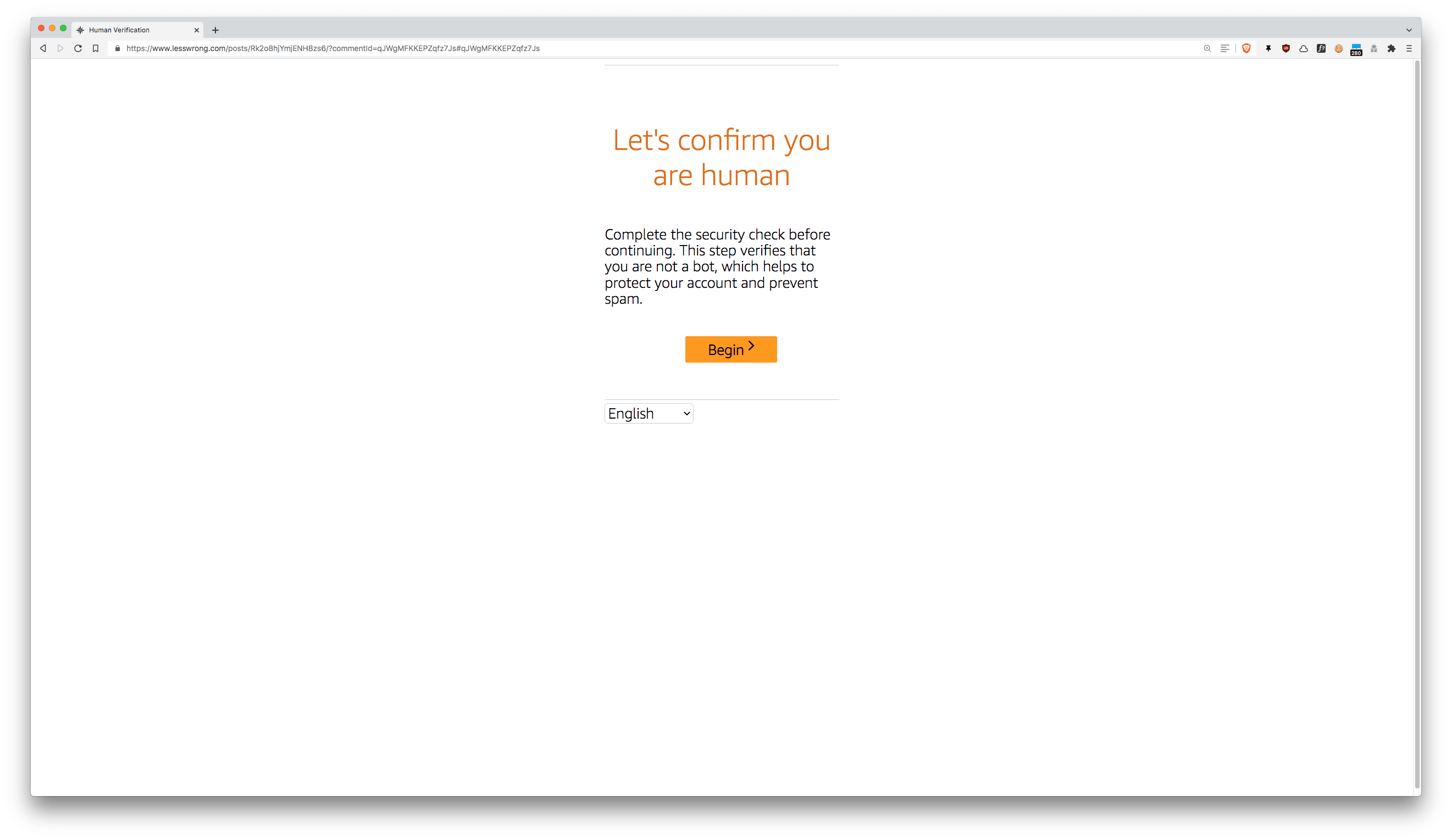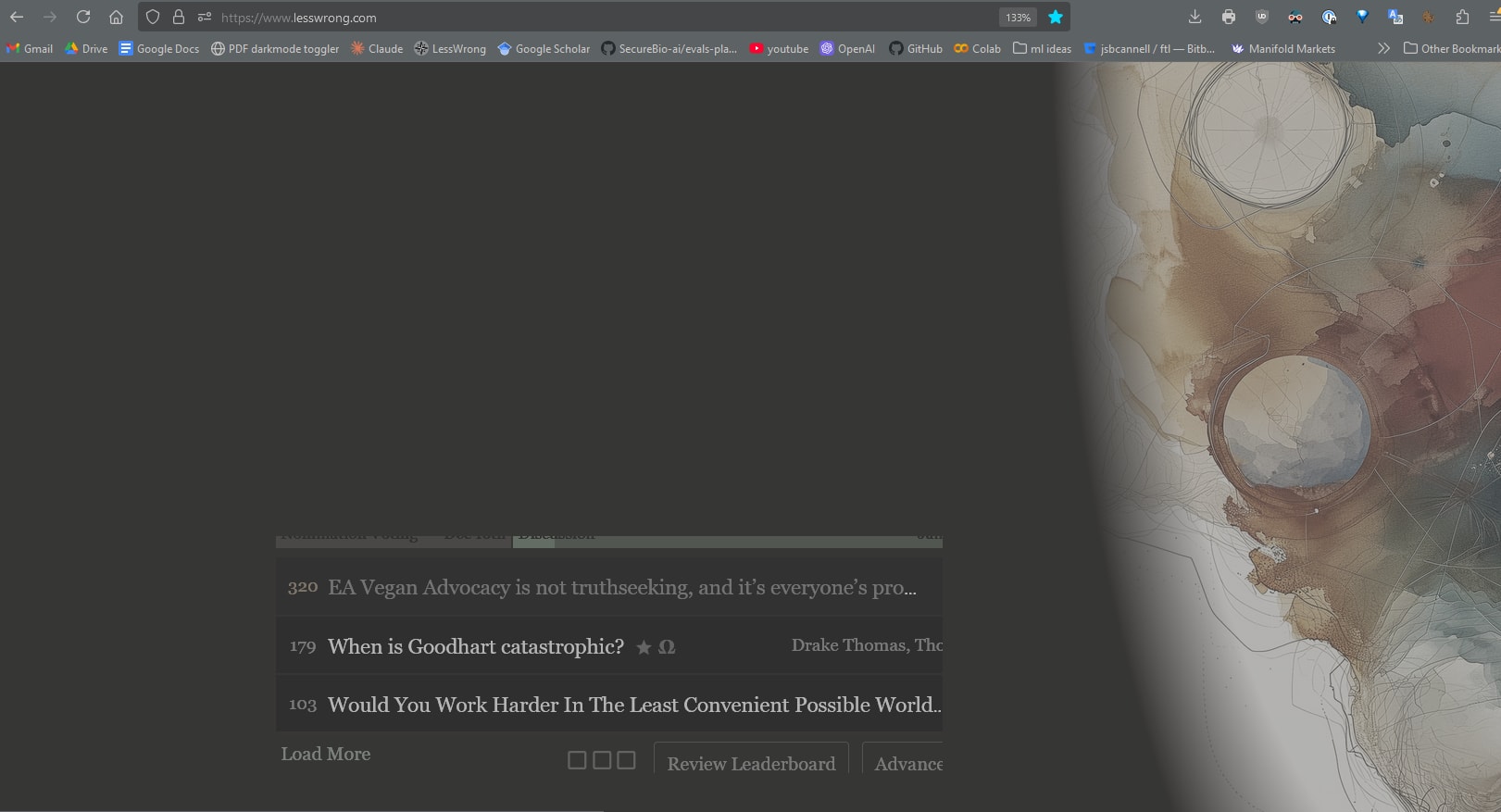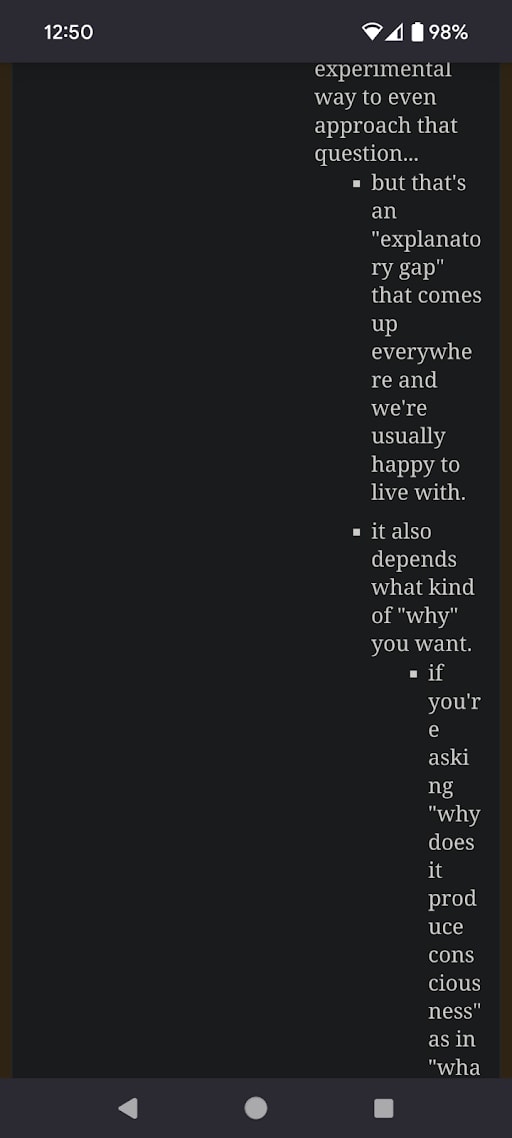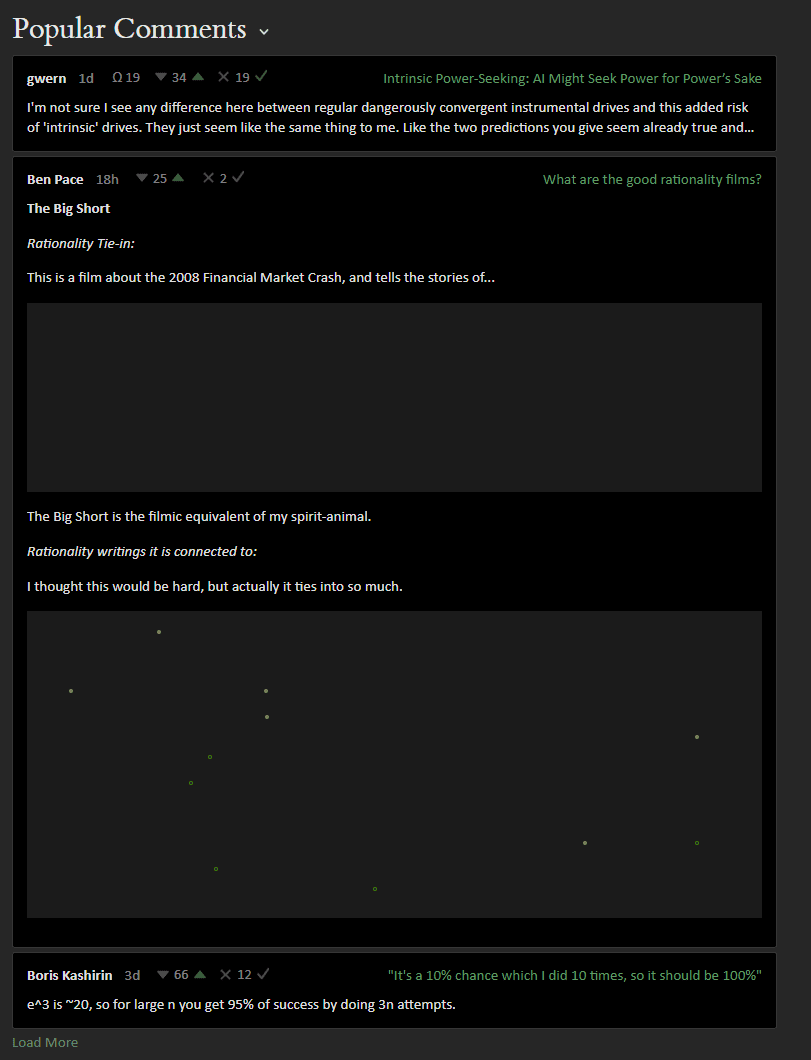If it’s worth saying, but not worth its own post, here's a place to put it.
If you are new to LessWrong, here's the place to introduce yourself. Personal stories, anecdotes, or just general comments on how you found us and what you hope to get from the site and community are invited. This is also the place to discuss feature requests and other ideas you have for the site, if you don't want to write a full top-level post.
If you're new to the community, you can start reading the Highlights from the Sequences, a collection of posts about the core ideas of LessWrong.
If you want to explore the community more, I recommend reading the Library, checking recent Curated posts, seeing if there are any meetups in your area, and checking out the Getting Started section of the LessWrong FAQ. If you want to orient to the content on the site, you can also check out the Concepts section.
The Open Thread tag is here. The Open Thread sequence is here.






If spaced repetition is the most efficient way of remembering information, why do people who learn a music instrument practice every day instead of adhering to a spaced repetition schedule?
this feels like a simplistic model of what's going on with learning an instrument. iirc in the "principles of SR" post from 20 years ago wozniak makes a point that you essentially can't start doing SR until you've already learned an item, this being obviously for purely sort of "fact" based learning. SR doesn't apply in the way you've described for all of the processes of tuning, efficiency, and accuracy gains that you need for learning an instrument. my sloppy model here is that formal practice eg for music is something like priming the system to spend op... (read more)